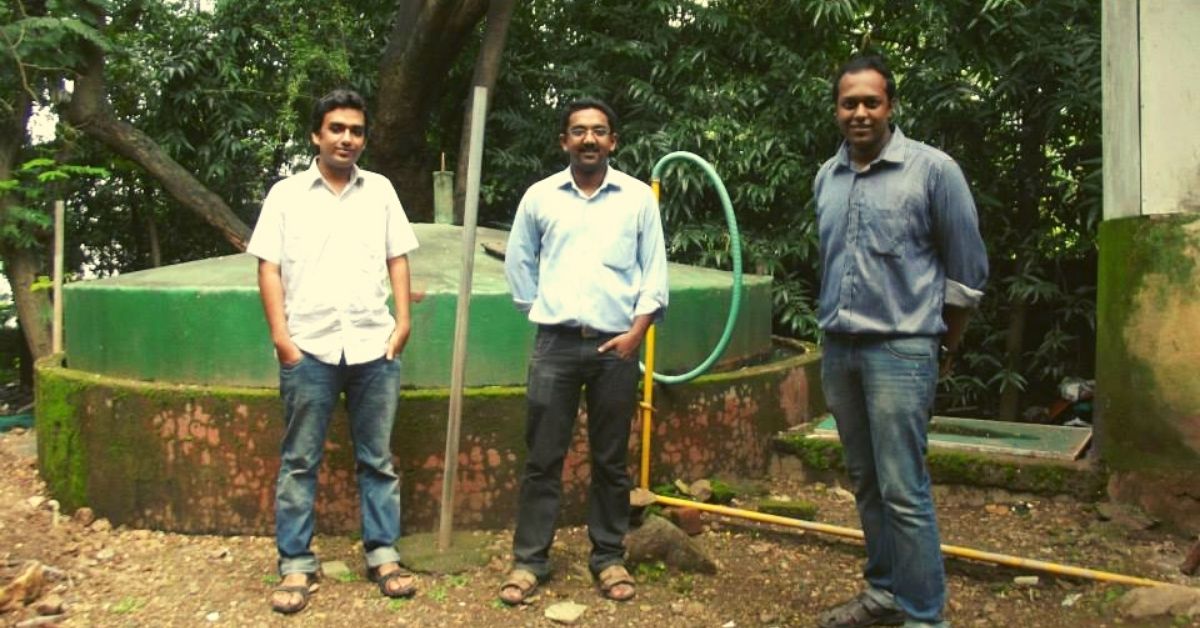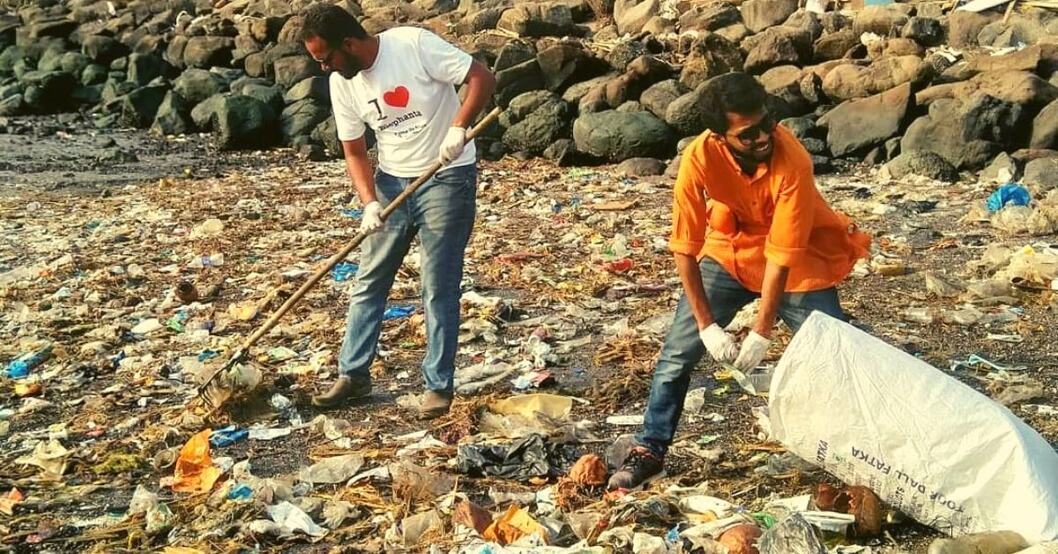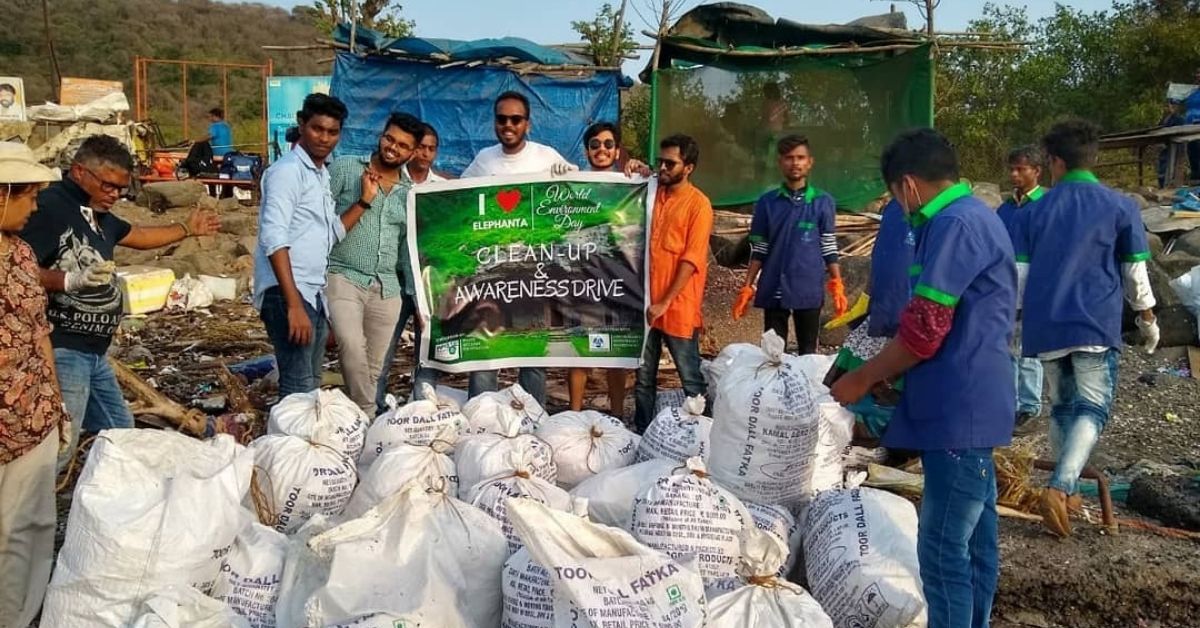Social Enterprise Processes 60,000 Tonnes of Food Waste, Empowers 500 Waste Pickers
Be it end-to-end decentralised waste management solutions like setting up waste handling systems or providing operation and maintenance assistance, Sampurn(e)arth has come a long way in transforming the sector sustainably.

This article has been sponsored by DBS Bank India
Ignorance is not really blissful when it culminates in a toxic affair. This fact holds particularly true in the case of waste management in India.
Most urban cities in India, with its burgeoning population, face a massive waste management challenge. With more than 377 million people living in urban cities and towns, generating close to 60 million tonnes of municipal solid waste per annum, the situation continues to be bleak. This is because most of the waste, almost 31 million tonnes of it, goes into the open landfills, leaving the rest to be recklessly dumped on streets.
Ritvik Rao, an expert in the field, points out that it is we who are to blame for that. “Why is the waste generated in our houses someone else’s business? Being ignorant about our responsibility and contribution to the cycle of waste generation is one of the biggest problems with waste management in India. Source segregation is one of the most crucial ways to combat it, but first, we need to learn to be accountable for our waste,” says the 32-year-old. Ritvik’s passion for the cause pushed him to start a social enterprise which focuses on urban waste management called Sampurn(e)arth with seed capital from DBS Bank India.
Care, before complaining

The idea for Sampurn(e)arth first surfaced as part of a social entrepreneurship course designed to encourage sustainable businesses at Tata Institute of Social Sciences (TISS). The enterprise was part of the DBS-TISS Social Entrepreneurship Programme that provided seed funding and business mentorship to social enterprises This was when three postgraduate students of social entrepreneurship decided to combat the ignorance towards waste management with a systematic approach of holding the waste generator as accountable as all the other stakeholders.
Ritvik, along with Debartha Banerjee and Jayanth Nataraju started the Mumbai-based social venture in 2012. Their aim was to provide waste solutions that not only focus on disposal and recycling but also on counselling and helping people achieve green goals, including zero waste generation.
Equipped with a triple bottom line approach, their projects focused on being eco-friendly, engaging with the unorganised sector of sanitation workers and waste-pickers, and creating green solutions that were economically self-sustaining. Be it end-to-end decentralised solutions or providing operation and maintenance assistance, Sampurn(e)arth has come a long way in transforming the waste management sector sustainably.
“The usual outlook of ‘out of sight, out of mind’ often plagues this sector. By holding citizens accountable, providing them with easy-to-use tools of improvement and incentivizing them through the creation of value from waste, we are trying to make a long-lasting impact,” adds Ritvik.
Waste-pickers to Waste managers

Prior to starting Sampur(e)arth, the trio began to volunteer for NGOs working in this sector to get a nuanced understanding of waste management in India. One of the organisations that they worked with was an NGO focused on the role of waste-pickers and their rights. It was this exposure that opened their eyes to the deeper cracks that lay within the system of waste management in India, one that involved rampant exploitation of the waste-pickers and sanitation workers.
They realised that waste solutions exclusive to the problems faced by waste-pickers would be incomplete. And this pushed them to create a more inclusive approach.

“People need to be aware and sensitive to the other stakeholders in the chain, which includes waste-pickers. Often exposed to exploitation by their scrap dealers and harmful and unsanitary working conditions, organising this largely unorganised sector was one of the many challenges we had to overcome in the process, and today we can proudly say that Sampurn(e)arth has been responsible for indirect employment of over 500 people in the sector, over the last eight years,” adds Ritvik. His venture has trained several waste-pickers to manage both bio-degradable and non-biodegradable waste management systems sustainably, transforming them into successful waste-managers.
Focused on optimising and creating the right technology for sustainable waste management with a seamless implementation, Sampur(e)arth has worked with housing societies, corporates, educational institutions as well as municipal corporations.
Owing to its all-encompassing approach towards waste management and sustainability, Sampurn(e)arth is one of the many organisations supported by DBS Bank India in its movement towards zero food waste.
“From providing seed funding to strategic mentoring, DBS Bank India has been supporting us since 2011, and in turn we have been an active part in their fight against food wastage. Through our efforts, we have ensured that more than 50 housing societies in Mumbai employ sustainable measures for food waste collection, source segregation and have processed almost 60,000 tonnes of food waste so far. We have come a long way, but there’s a lot more to be done and accomplished,” shares Ritvik.

In a country that produces around 67 million tonnes of food waste every year, efforts like that of DBS Bank India to attain a zero-waste tomorrow is noteworthy. DBS Bank India has collaborated with The Better India and launched a unique campaign called #NotInstaWorthy challenge- to spread awareness about the need to reduce food wastage and change mindsets about what’s considered #NotInstaworthy. In a world where memorable eating experiences are judged based on how ‘Instaworthy’ the photos are, we invite you to turn the tables on food waste and share pictures of hacks to reuse leftovers, grow a kitchen garden or preserve food. By doing so, DBS Bank India is not only setting a positive precedent but also helping people truly achieve a zero food waste lifestyle. Find out more about the challenge here.
(Edited by Yoshita Rao)
If you found our stories insightful, informative, or even just enjoyable, we invite you to consider making a voluntary payment to support the work we do at The Better India. Your contribution helps us continue producing quality content that educates, inspires, and drives positive change.
Choose one of the payment options below for your contribution-
By paying for the stories you value, you directly contribute to sustaining our efforts focused on making a difference in the world. Together, let’s ensure that impactful stories continue to be told and shared, enriching lives and communities alike.
Thank you for your support. Here are some frequently asked questions you might find helpful to know why you are contributing?


This story made me
-
97
-
121
-
89
-
167













